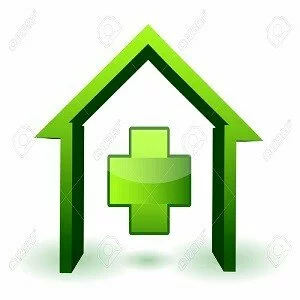The relationship between housing and health is multi-faceted. A healthy home needs to have sound structure, to be free of hazards, to provide adequate facilities for sleeping, personal hygiene, the preparation and storage of food, to be an environment for comfortable relaxation, for privacy and quiet, and to provide the facility for social exchange with friends, family and others. The local environment is also important in determining such factors as fear of crime, access to local services and facilities and in promoting social interaction, but clearly the control of housing should ensure the full range of safe and healthy conditions, with all necessary regulatory codes, capable of being properly applied and enforced and backed by effective sanctions in the case of non-compliance.
In addition to controls on the design and construc¬tion of individual dwellings, there should be effective planning. These measures should include ensuring that housing is protected from noise sources, either by separation from roads and other potential sources or by the provision of barriers. There should be programmes directed to the provision of affordable housing. The number and size of housing units should take account of local and national demands and trends. This can limit crowding and the associated risks to health that are not caused by the building itself but by a mismatch between the size of the building and the characteris¬tics of the household.
Housing-related hazards include:
1.Structural failure
Failures of buildings is not new in this country and Lagos State has recorded several building collapse in the last few years, one of the most recent being that of the synagogue church building.
Most building collapse could be traced to structural failure due to design, poor material or unprofessional construction.
Several deaths and injuries followed the several building collapse that have occurred in this country.
2.Location
The location of a house could also be hazardous, certain neighbourhoods are prone to violence and other social vices that are deleterious to health. Location also determines availability of potable water supply and proper sanitation facilities.
3.Protection against intruders
In most houses in Nigeria, burglary protection is a necessity for the windows and doors against petty thieves, and armed robbers. However in case of fire or any other form of emergency requiring escape from the house, this same burglary protection could become a death trap, a lot of people have died from this.
It is advisable to have a lockable window within the burglary protection.
4.Hot surfaces and materials
Materials in the house especially in the kitchen and bath room could cause hot surfaces. Several materials are used for kitchen counter tops, some being more heat resistant than the others, the materials also have different rate of heat conduction.
Installation method of hot tubs can also cause hot surfaces
5.Inadequate lighting
Inadequate lighting within a house can cause falls especially on the stairs leading to several forms of injuries-bruises, fractures, cuts, head injuries and even death.
6.Poor ergonomics
Ergonomics here refers to the design and arrangement of the things for use in the house; this covers the furniture, the kitchen counter/cabinet, the bed and wardrobes. Poor ergonomics will reveal itself in the form of headache, neck pain and low back pain.
An example is a very high or low counter in the kitchen depending on the height of the cook in the house.
Some chairs are so poorly designed that they give low back pain.



No Comments